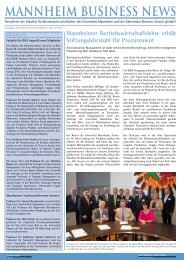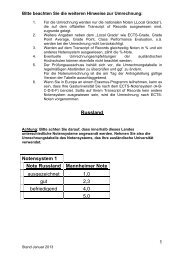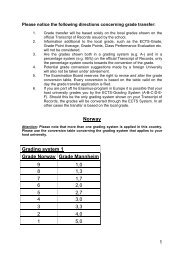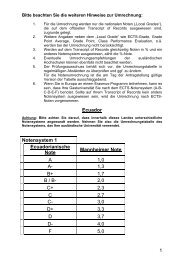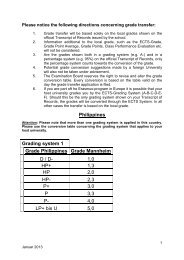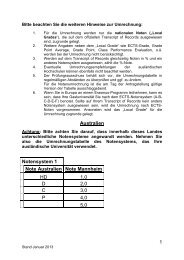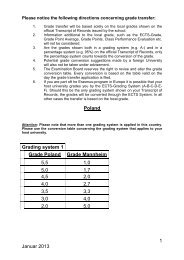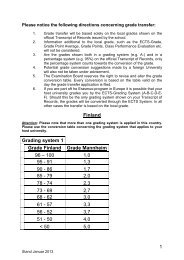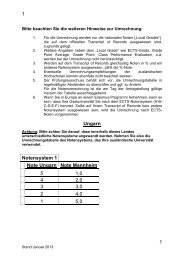LARISA TOPALO University of Mannheim Exchange Report ... - BWL
LARISA TOPALO University of Mannheim Exchange Report ... - BWL
LARISA TOPALO University of Mannheim Exchange Report ... - BWL
You also want an ePaper? Increase the reach of your titles
YUMPU automatically turns print PDFs into web optimized ePapers that Google loves.
the SFU Transfer credit database have now become graduate level courses and as an<br />
undergraduate you may not be able to take them.<br />
Student Life<br />
There is definitely a lot <strong>of</strong> partying in Germany, but don’t let that fool you. When<br />
exams are coming close everyone lives at the library. In general I noticed that German<br />
students study very hard and take school very seriously. Unlike us, they rarely have a<br />
part-time job. And extra-curricular involvement such as conferences, competitions,<br />
etc. like we have at SFU is not common here, so studying is the main thing. It actually<br />
felt quite luxurious to do nothing but study. I also have to note that breakfast is a<br />
sacred meal here. No matter how late German students go to bed they always wake up<br />
for breakfast.<br />
Finances<br />
Living in Germany is ridiculously cheap. Especially after travelling to other countries<br />
in Europe, you will be amazed at the affordability here.<br />
Accommodation: You are looking at about 210-300 Euro per month for rent.<br />
Food: If you are willing to buy groceries and cook, 180 Euro a month will easily<br />
cover you. Otherwise, there are restaurants with 5-6 Euro pasta. The Mensa (student<br />
cafeteria) has meal options from 2.75 to 4 Euro. (and the meals are quite big, I could<br />
never finish one). There are also fast food, kebab and sandwich places with average<br />
cost <strong>of</strong> about 3 Euro.<br />
Travel: In North America we have a culture <strong>of</strong> last-minute sales and last minute travel<br />
and usually think that is cheaper. Erase that mentality for Europe. The more ahead<br />
you plan your trip, the cheaper the transportation cost will be. Look into<br />
www.eurolines.com or the German rail system www.bahn.de. Also you can look into<br />
a Eurail pass if you already know where exactly you want to go. Transportation in<br />
Germany, France and Switzerland is perhaps the most expensive. Italy is quite<br />
affordable. Airlines like www.ryanair.com <strong>of</strong>fer ridiculous discounts, but with strings<br />
attached: you can only bring one bag <strong>of</strong> 10 kg with you, the airports they fly into are<br />
not the main airports, shuttle buses will cost you, and the general rule <strong>of</strong> thumb is if<br />
they can charge you for something, they will; however, in many cases it still ends up<br />
being cheaper.<br />
Local Travel: The semester ticket costs about 110 Euro and covers a large area<br />
around <strong>Mannheim</strong> (including Heidelberg) and also makes it cheaper to travel to more<br />
distant places. I didn’t invest in one because I lived 7 minutes away from university<br />
and didn’t need to take the tram every day. But if you do need to travel frequently it<br />
will probably be well worth it.<br />
Budget: Personally I survived easily on 400 Euro a month food, accommodation and<br />
party included. I then spent about 150 Euro on the weekends for travel. (If you can’t



